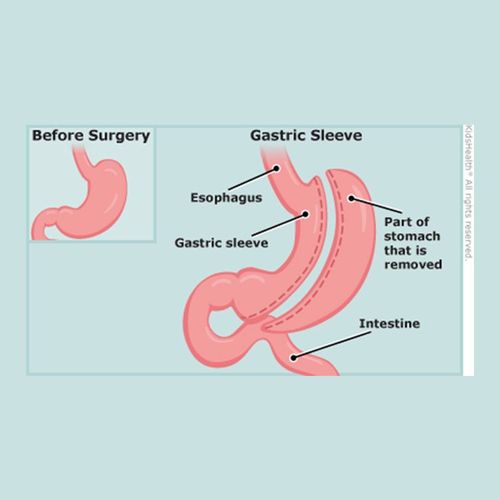Surgery to aid weight loss is soaring in popularity, thanks to such famous people as Al Roker, Sharon Osbourne and Congressman Jerrold Nadler (D., NY) who have had it. Most surgeons are booked a year in advance. Here's what you need to know…
Permanent Weight Loss
The most popular bariatric procedure is Roux-en-Y gastric bypass. The surgeon staples across the top of the stomach, leaving a pouch about the size of a golf ball. The first part of the small intestine (duodenum) is removed. The surgeon then attaches the middle portion of the intestine (jejunum) to the upper pouch.
Bypassing the lower part of the stomach and the duodenum restricts the body's ability to absorb calories but still provides adequate nutrition.
People who undergo bariatric surgery—a permanent procedure—lose an average of 75 pounds in the first year. About 85% lose half of their body weight and keep it off for at least five years.
Bonus: The surgery cures some weight-related health problems. High blood pressure is reduced in more than two-thirds of cases, for example. Blood sugar normalizes in about 90% of diabetics.
The cost averages $25,000. It may be covered by insurance.
A less expensive option ($12,000 to $20,000) is the Lap-Band, a strip of silicone that is placed around the stomach to constrict it. But I don't recommend the procedure because it has not been used long enough for effectiveness and risks to be evaluated sufficiently.
Not For Everyone
Bariatric surgery is not a cosmetic procedure. Patients must have a body mass index (BMI) of at least 40. The majority are at least 100 pounds over their ideal weight and have conditions associated with extreme obesity, including hypertension, diabetes, sleep apnea, esophageal reflux disease and degenerative arthritis.
There are risks. A few patients—less than 1%—die from pulmonary embolism (a blood clot in the lungs). Other risks include a potentially fatal leakage at the point where the small intestine joins the stomach. The risks are highest in the heaviest patients, who have BMIs of 60 or higher.
*BMI formula: Figure your height in inches. Multiply this number by itself. Divide your weight in pounds by this number. Multiply by 703. Underweight: Below 18.5. Normal: 18.5 to 24.5. Overweight: 25 to 29.9. Obese: 30 and above.
About 12% of patients who undergo gastric bypass surgery require vitamin B-12 supplements. Most patients are advised to take a daily supplement that contains iron, calcium and magnesium minerals that aren't absorbed efficiently by the jejunum.
Warning: Smokers have 10 times the risk of complications as nonsmokers. I require patients who smoke to quit at least three weeks before surgery.
Adjusting After Surgery
Many patients who undergo the procedure underestimate the dietary changes they have to make. A typical meal might consist of five forkfuls of chicken...a tablespoon of mashed potatoes or a vegetable...and a taste or two of salad. You will need time to adjust to eating these smaller meals. The most important thing you can do is to eat exactly the way your doctor tells you…
- Emphasize protein in order to maximize strength. Stomach space is very limited. When choosing between carbohydrates or protein, pick protein.
- Eat slowly. Your average meal will weigh about two ounces and might take a half-hour or more to eat. Eating too much too fast can cause nausea and cramps. People quickly learn their limits.
- Avoid refined sugar. It can cause "dumping syndrome," a rush of glucose into the blood that causes nausea, diarrhea and rebound hypoglycemia, a sudden plunge in blood sugar.
